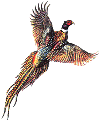
 FLATCOAT.COM FLATCOAT.COM
Home
Page
Send us E-Mail
Presenting the Dogs
 History of... History of...
Omega Retrievers
Sterling Retrievers
Flat-Coated Retriever
 The Adventures of... The Adventures of...
Quail Hunting
Duck Hunting
Dog Show
 Buying a Flat-Coat Buying a Flat-Coat
FCR Pros and Cons
Finding a Breeder
Questions to Ask
Health Clearances
Dog Contracts
The Standard
 Training Tips Training Tips
Show Ring
The Field
Crate Training
 FCR Heatth FCR Heatth
Flat-Coat First Aid
What is Giardia?
 Flying your FCR Flying your FCR
 FCR Movement FCR Movement
 The Whelping
Box The Whelping
Box
 GWFCRC
Club Page GWFCRC
Club Page
 Favorite Links Favorite Links
| flat-coated retriever puppy
flatcoated retriever pictures flat coated retriever puppy flat coat photos flatty
flat-coated dog breeder akc breed judge akc licensed judge sporting group judge best in
show best of winners winners dog winners bitch dog show golden retriever grcgla grca
labrador retriever canine akc retriever hunting test judge master hunter senior hunter
junior hunter akc hunting test program working certificate excellent field training dog
obedience training dog training cdx utility dog excellent ud udx agility dog excellent ad
adx whelping box crate training sterling and omega kennel club of riverside kennel club
gwfcrc great western flat-coated retriever club fcrsa frank holbert adrienne ayles roger
orton peachie orton bunky orton ontario california yucaipa california southern california |
|
THE
PROS AND CONS OF OWNING A FLAT-COATED RETRIEVER
by Sally Terroux
The Flat-Coated Retriever is extremely versatile as a hunting-flushing retriever and are a
responsive family companion. As a pet, the Flat-Coat is an active dog who adapts well to
city life but requires considerable daily exercise and activity with family members.
 The typical Flat-Coat feels more "worthwhile" and expects to be
admired when he is carrying something (anything) in his mouth. He enjoys playing in water,
but is basically clean and requires only weekly brushing. He barks at strangers at a
distance, but needs to be trained to not jump up joyfully on your guests. He is good
natured and loves to play with children but usually needs training to play more gently
with toddlers. His natural instincts are strong and he likes to dig and chew, but usually
not to excess. He is a bright dog whose intelligence can get him into trouble if not
channeled in the right direction. He is a happy dog who keeps his youthful outlook on life
into old age. The typical Flat-Coat feels more "worthwhile" and expects to be
admired when he is carrying something (anything) in his mouth. He enjoys playing in water,
but is basically clean and requires only weekly brushing. He barks at strangers at a
distance, but needs to be trained to not jump up joyfully on your guests. He is good
natured and loves to play with children but usually needs training to play more gently
with toddlers. His natural instincts are strong and he likes to dig and chew, but usually
not to excess. He is a bright dog whose intelligence can get him into trouble if not
channeled in the right direction. He is a happy dog who keeps his youthful outlook on life
into old age.
In the field the Flat-Coat is birdy and usually responsive, but he can be headstrong
because of enthusiasm, birdiness or enjoyment of the run. He is very versatile and
adaptable and at his best when challenged the most.
Slow to mature (three years or more) early puppy play training is encouraged and good
manners can be strictly enforced, but formal training should be kept brief, cheerful and
enthusiastic. Flat-Coats are bright, catch on quickly and are easily bored. Bad habits
should be PREVENTED through a combination of personal supervision and confinement combined
with adequate exercise and attention.
The gene pool is quite small since the breed almost died out in Great Britain during World
War II. Breeders have experienced some problems with the patella joint, hip dysplasia and
cancer. Breeding stock should be selected and bred only with great care and knowledge. The
Flat-Coated Retriever Society of America encourages breeding for the original purpose of
the breed (the hunting retriever) in order to preserve its hardiness, longevity and
temperament.
The Flat-Coat is a charming dog to live with and can be trained to excel in a wide
variety of activities, but HE DOES ABSOLUTELY REQUIRE AND APPRECIATE
CLOSE INTERACTION WITH MEMBERS OF HIS FAMILY.


Special thanks to Sally Terroux for letting us
reprint this article.
Updated 09/24/98 |
|